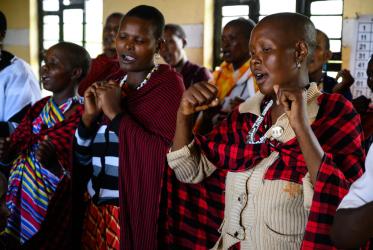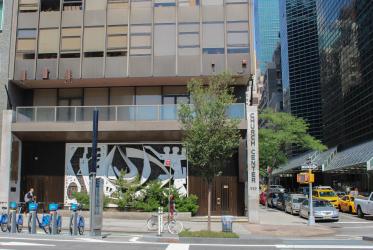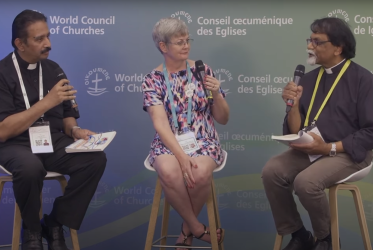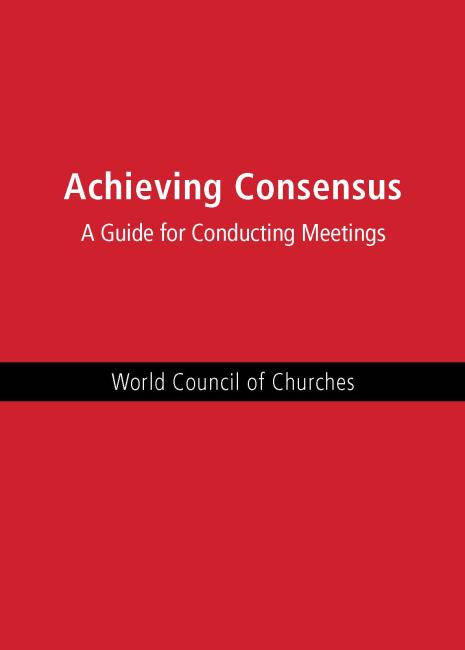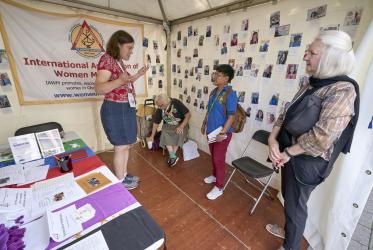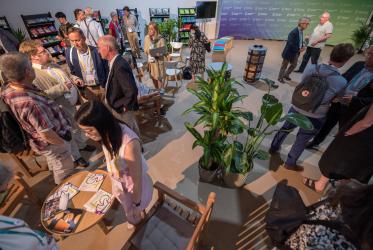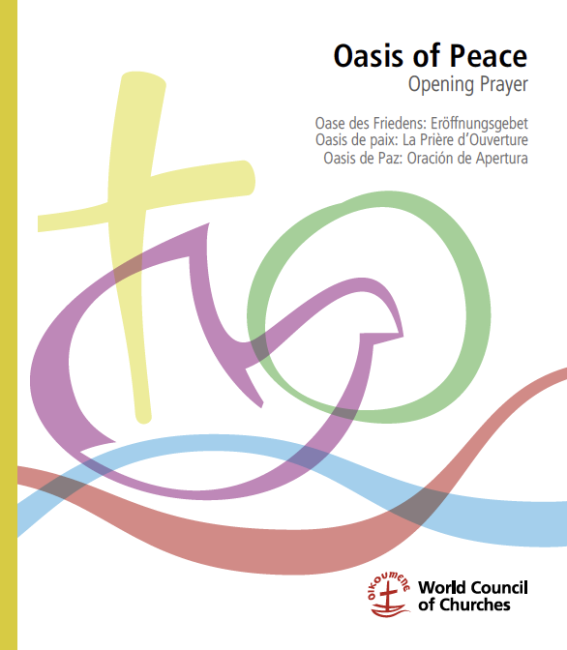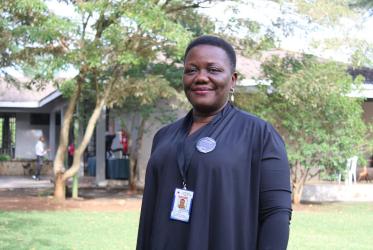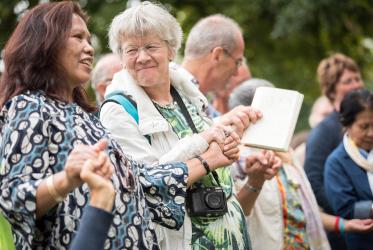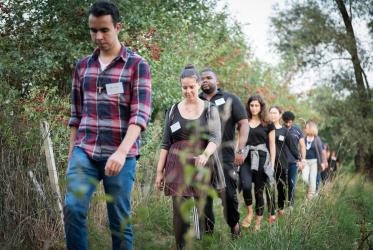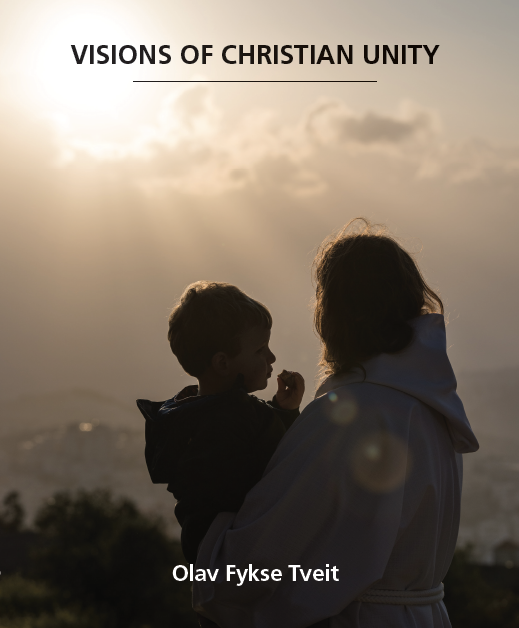Displaying 121 - 140 of 990
In New York City, the spirit of Thursdays in Black is thriving
06 October 2022
At assembly and beyond, WCC publications inspire and move
14 September 2022
From hostility to hospitality: Closing prayers at Karlsruhe
09 September 2022
Bible studies bring ways to learn how Christ’s love moves us
06 September 2022
Saturday morning prayers invoke movement for truth and righteousness
03 September 2022
Oasis of Peace Opening Prayer
30 August 2022
Visions of Christian Unity
24 August 2022

